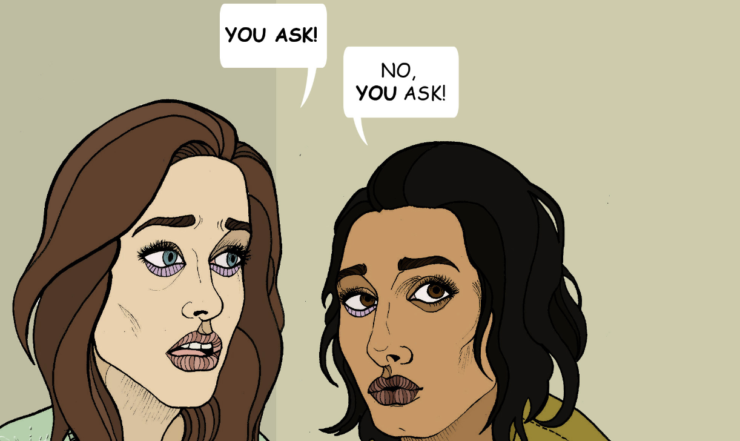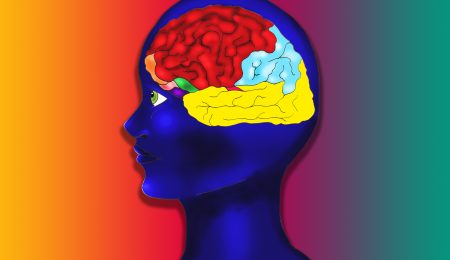How Millennials have become so narcissistic
Darren Sharp | Fulcrum Staff
I HAVE 2,877 Twitter followers.
I mention this not because I want to brag, but because my generation—Millennials, as we’ve been dubbed—care about this statistic. At the very least, we’ve been told we’re supposed to care about this number or other numbers like it, such as how many Facebook friends we have or how many views our latest blog post received. Does this make us narcissistic? Probably. But we were never supposed to turn out this way.
“[Previous] generations were reared to be more individualistic,” Michael Hais—author of Millennial Makeover: MySpace, YouTube, and the Future of American Politics—told USA Today in 2009, speaking about how Millennials would stack up against their predecessors. “This civic generation has a willingness to put aside some of their own personal advancement to improve society.”
Fast forward to earlier this year, when a new American study headed up by San Diego State University scholar Jean M. Twenge found that, when compared to Generation X and the Baby Boomers, Millennials were less community-oriented, less concerned for others, less politically active, and less worried about the environment. Money, fame, and image were listed as more important to us than self-acceptance and affiliation with others. Anxiety, depression, and poor mental health were discovered to be on the rise.
In short: We’re pretty into ourselves.
I think we’re simply able to navel-gaze with such extreme immediacy and detail that it’s hard not to use [the term ‘Generation Me’] to describe us.
In an email to the Fulcrum, Chelsea Fagan—one of the editors of Thought Catalog, a blog that has been hailed as something like the Millennial Bible for its essays on our generation—expressed that Millennials deal with a struggle that is unique to their age bracket.
“We are so incredibly involved with our own lives and importance, but also profoundly obsessed with measuring ourselves against the yardstick of ‘normal’ or ‘right’,” she said. “It’s the simultaneous desire to say, ‘Look at what I’m doing!’ and following it up with, ‘Is this okay?’”
If this is true, then we must ask ourselves a question that we’ve been accused of asking too often: Why us? What makes this generation so different from past ones?
“Our dependency on and addiction to technology is the greatest difference between us and previous generations,” said Aly Rode, a fifth-year U of O student majoring in French as a second language and history. “I can barely navigate home without my iPhone.”
Technology and social media have created the perfect storm for self-absorption. Want to tell the world that you’re going out to dinner? Grab your smartphone and tweet about it. Want to let your friends know exactly where you’re eating? Check in on Foursquare. Want to send out a picture of your linguine with a filter that makes it look like you’re dining by the French Riviera? There’s an app for that. Welcome to Generation Me.
“I think we’re simply able to navel-gaze with such extreme immediacy and detail that it’s hard not to use [the term ‘Generation Me’] to describe us,” said Fagan. “Who knows what other generations would have done if they had grown up on texting, social media, and thousands of pictures uploaded of every event they attend.”
The problem our age bracket faces is that we’re over-connected and under-connected at the same time. We share so much with each other, but it’s done under the glow of our laptop screens. Millennials are the first generation to grow up completely immersed in technology. Our definition of interaction is vastly different from our parents’.
“We were born into the middle of a huge technological boom,” said Derry Hendarna, a third-year U of O student studying international development and globalization. “So the way we grew up, we’re more social but less social.”
This “social but less social” issue bleeds into how Millennials interact with politics and activism. In the 2011 Canadian federal election, only 38.8% of voters aged 18-24 cast a ballot, with “lack of interest in politics” listed as the biggest contributing factor to this low number. Elections Canada cited a “low attachment to political parties” as a huge problem.
Similarly, our interest in environmentalism and other social issues is also waning. We were supposed to be the ones that cared about the planet because we drove a Prius and bought organic quinoa. However, Twenge’s study found that our concern for the environment is on a steep decline. But perhaps we’re just participating in our own way.
“Especially this generation, because we have access to these tools to be more active—whether it be blogging or Facebook or Twitter—people are being active through social media,” said Hendarna. “It’s not as much about storming Parliament Hill anymore.”
Millennials are a product of their surroundings. The only world we’ve known in our adult lives has included the Internet, iPhones, and Instagram, so can we really be blamed for letting those things shape our worldview?
“It seems unfair to attribute it as inherently our problem as human beings, because it seems to be, at least to a large degree, about the kind of world we live in,” said Fagan. “Hell, even my grandparents are using social media and talking about themselves. Does that make them inherently self-absorbed?”
The reality is that the Millennial generation lives in a different society than Generation X, much like Generation X lived in a different society than the Baby Boomers. We’re narcissistic because we were trained to be. I wouldn’t care about my number of Twitter followers if social media wasn’t ingrained on my lifestyle like a bad tattoo. Our definition of community has changed, our definition of social involvement has changed, and, most importantly, our definition of ourselves has changed. We are a product of our environment. I’m like this because Facebook told me to be.
Blaming my generation’s faults on outside factors; how Millennial of me.





